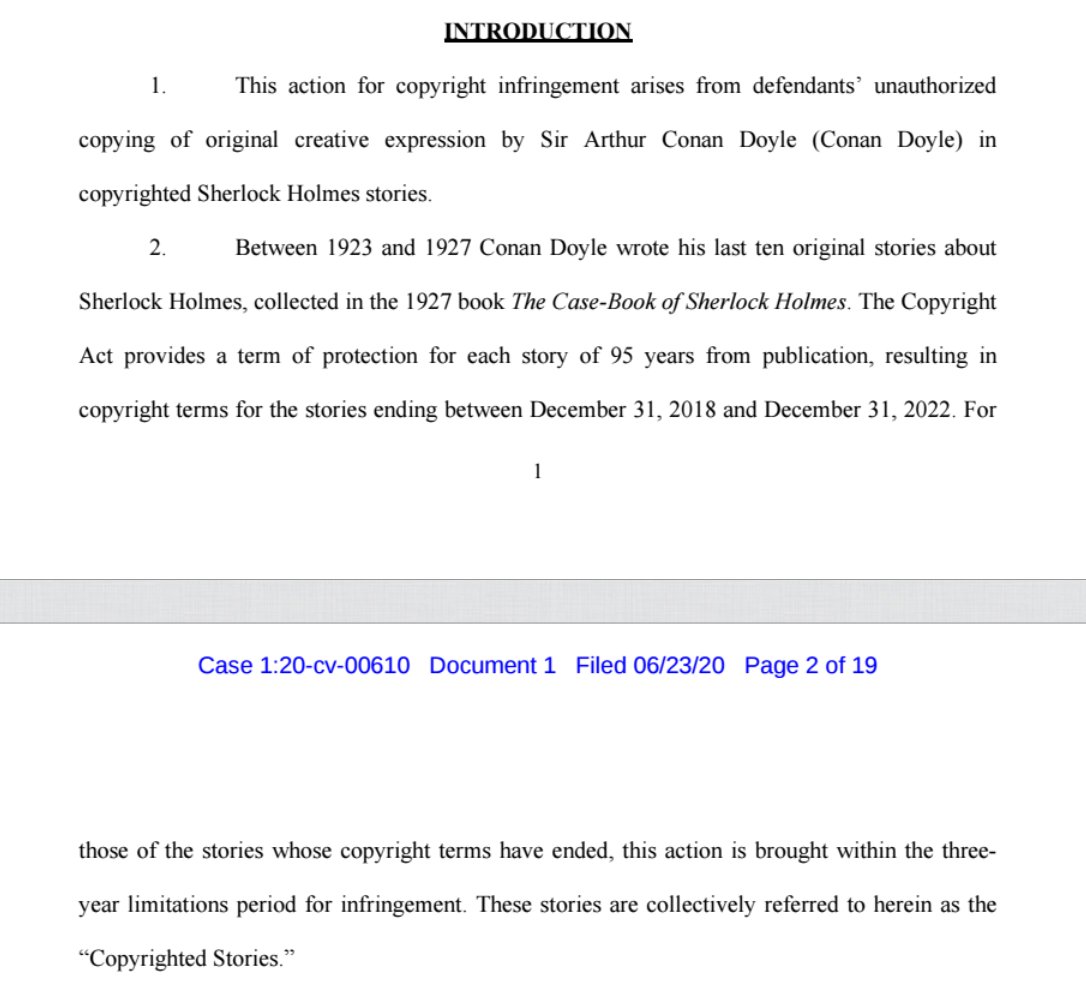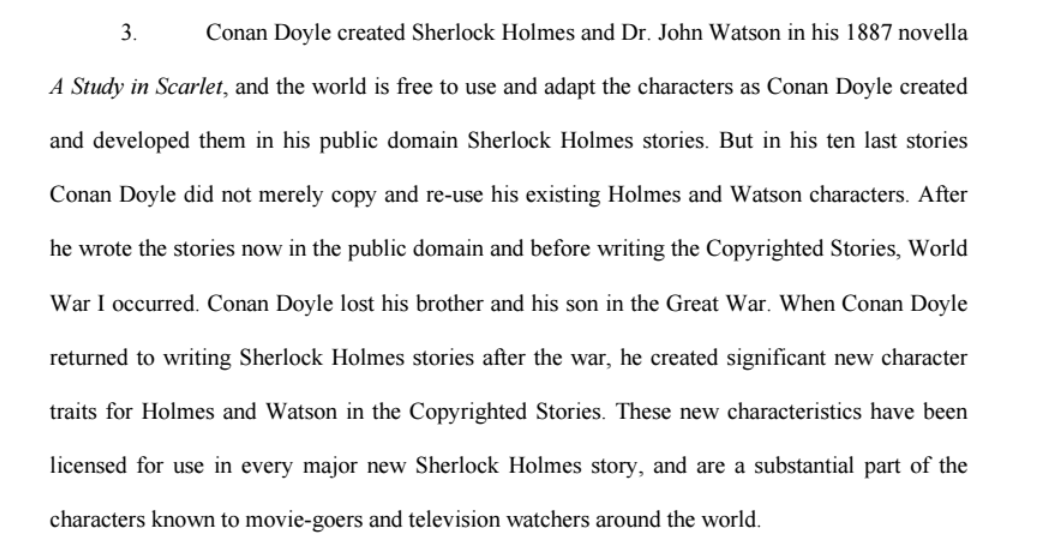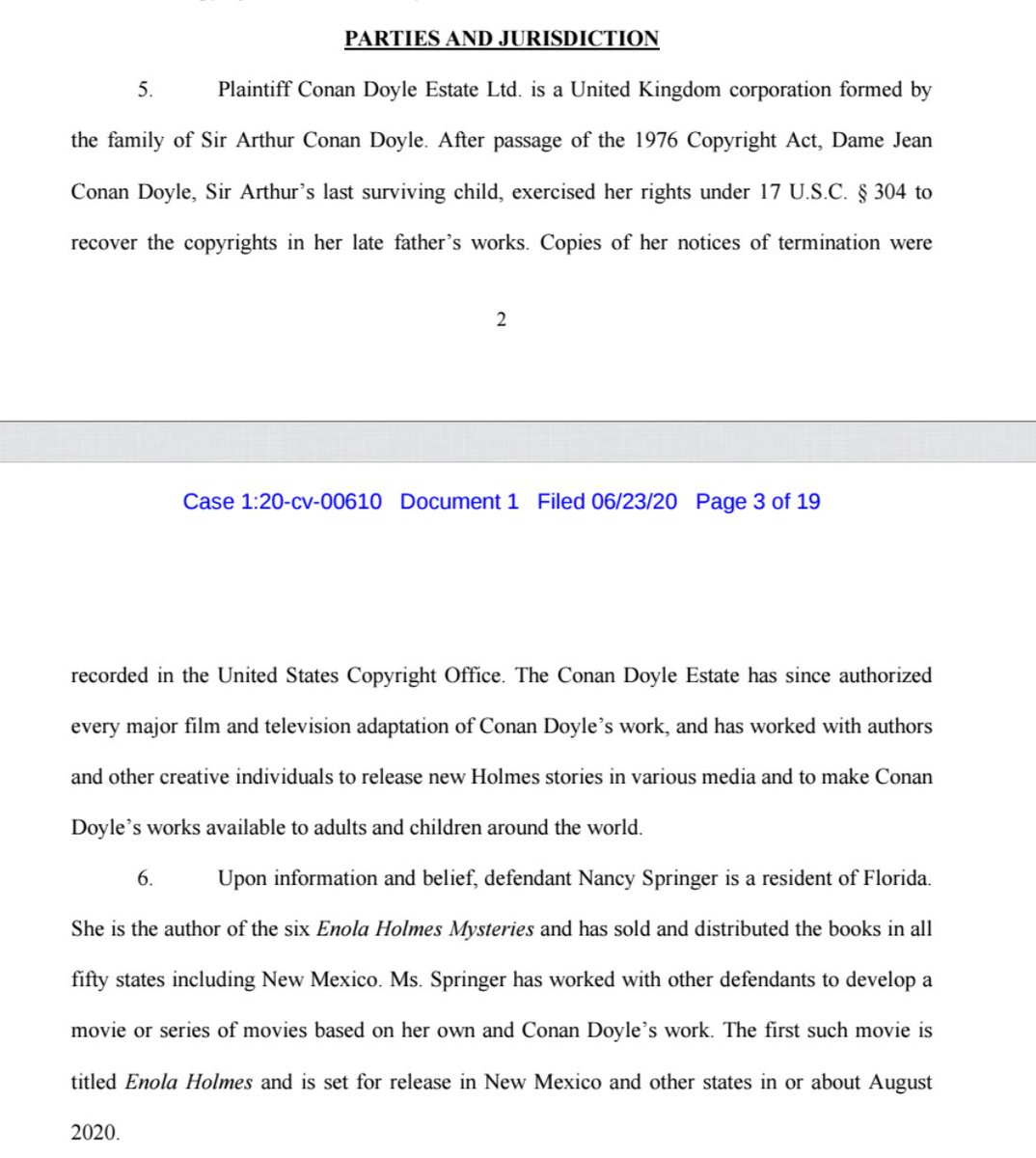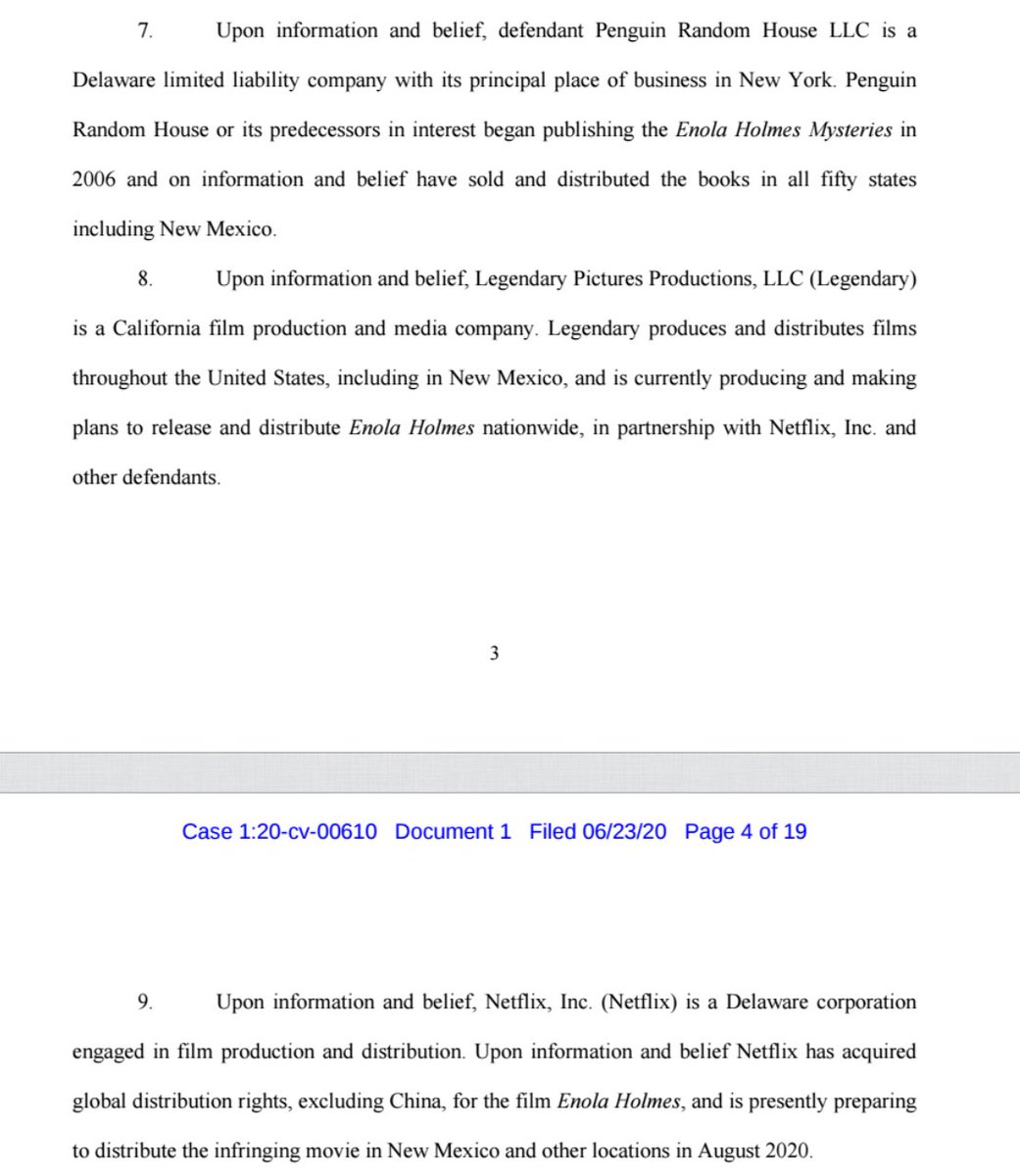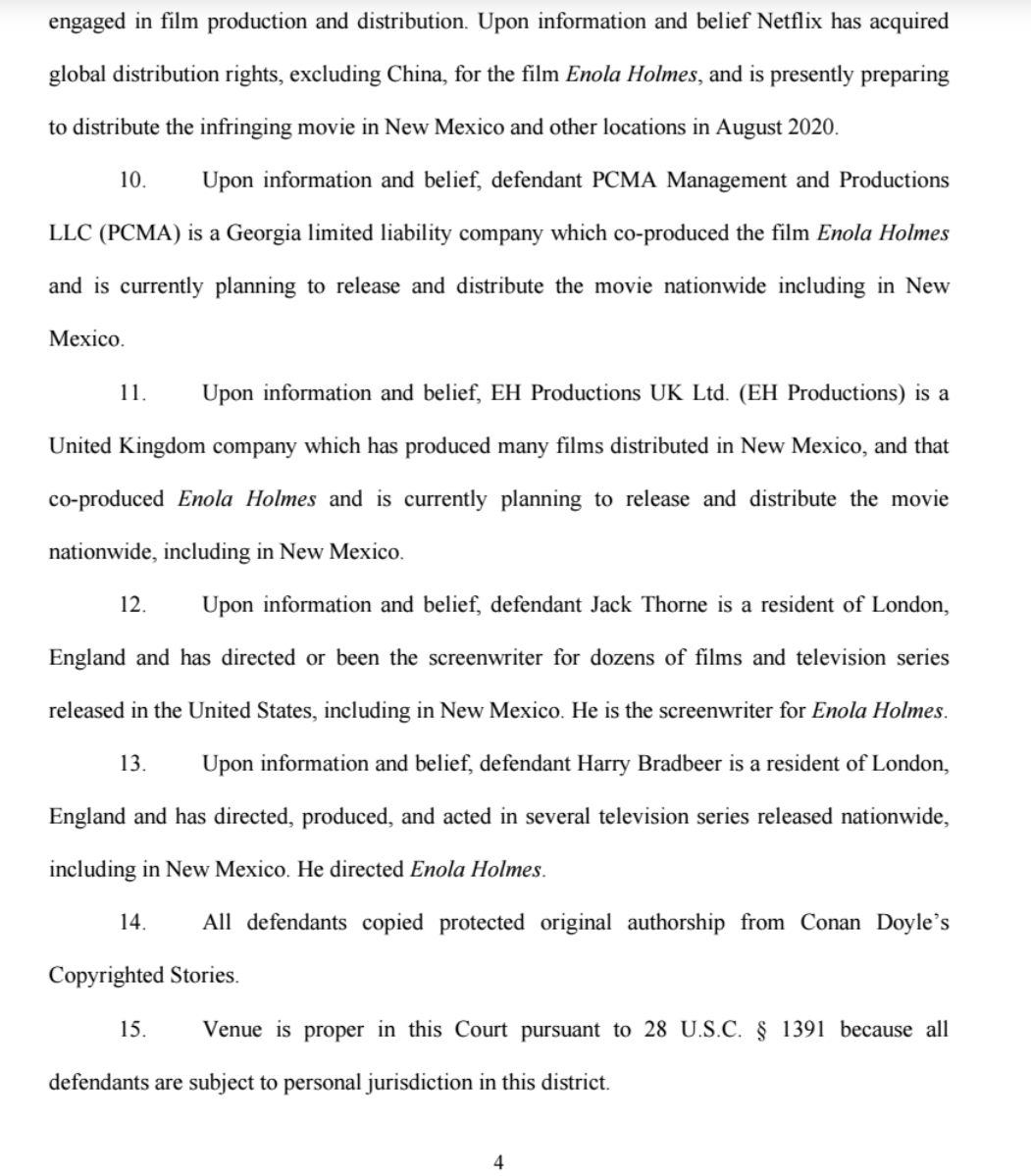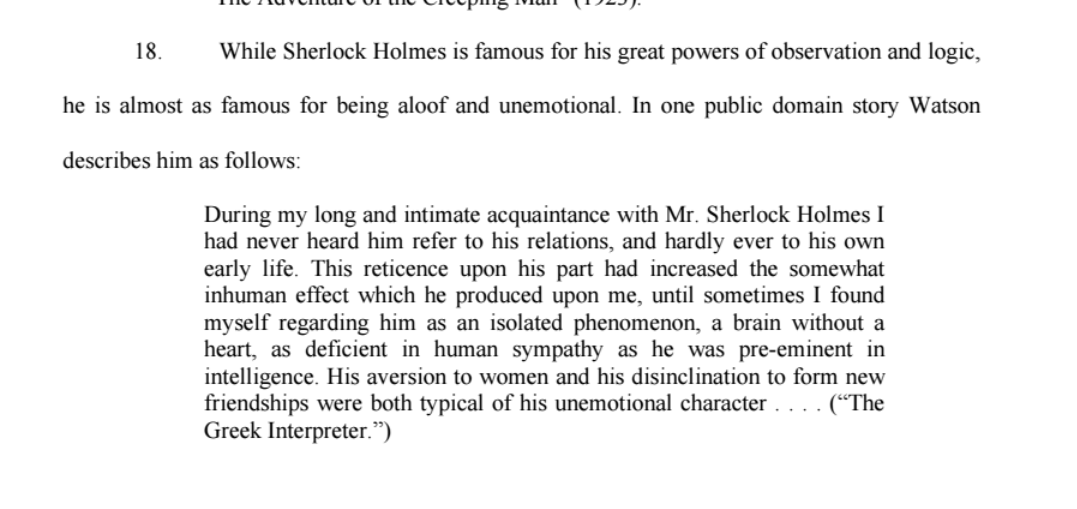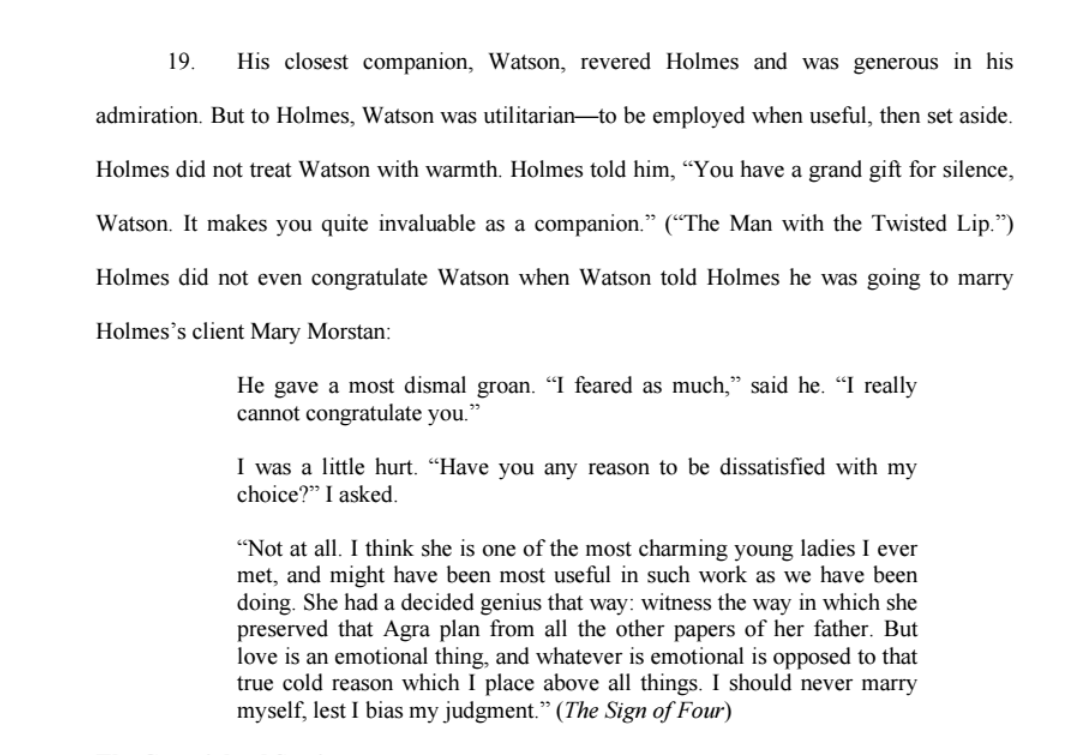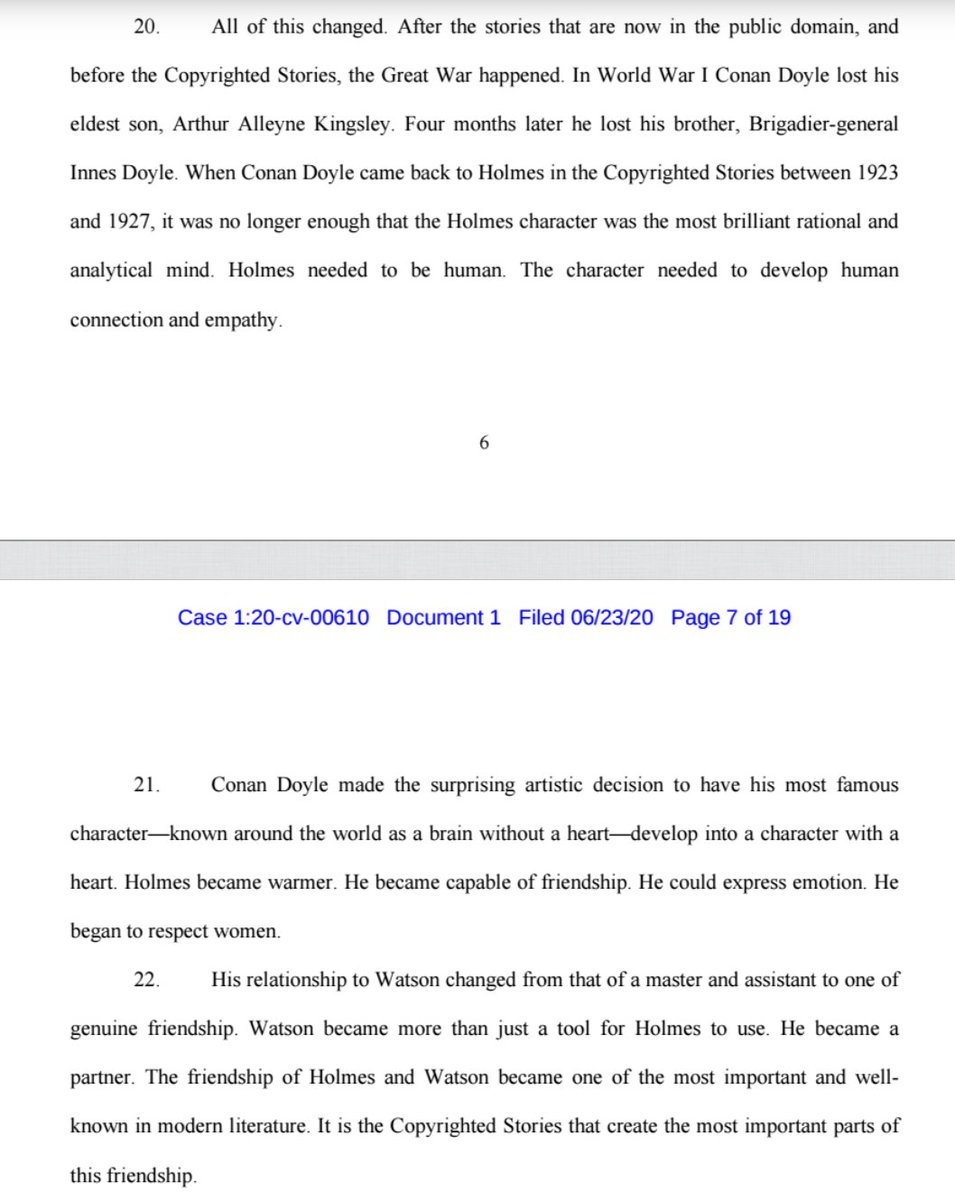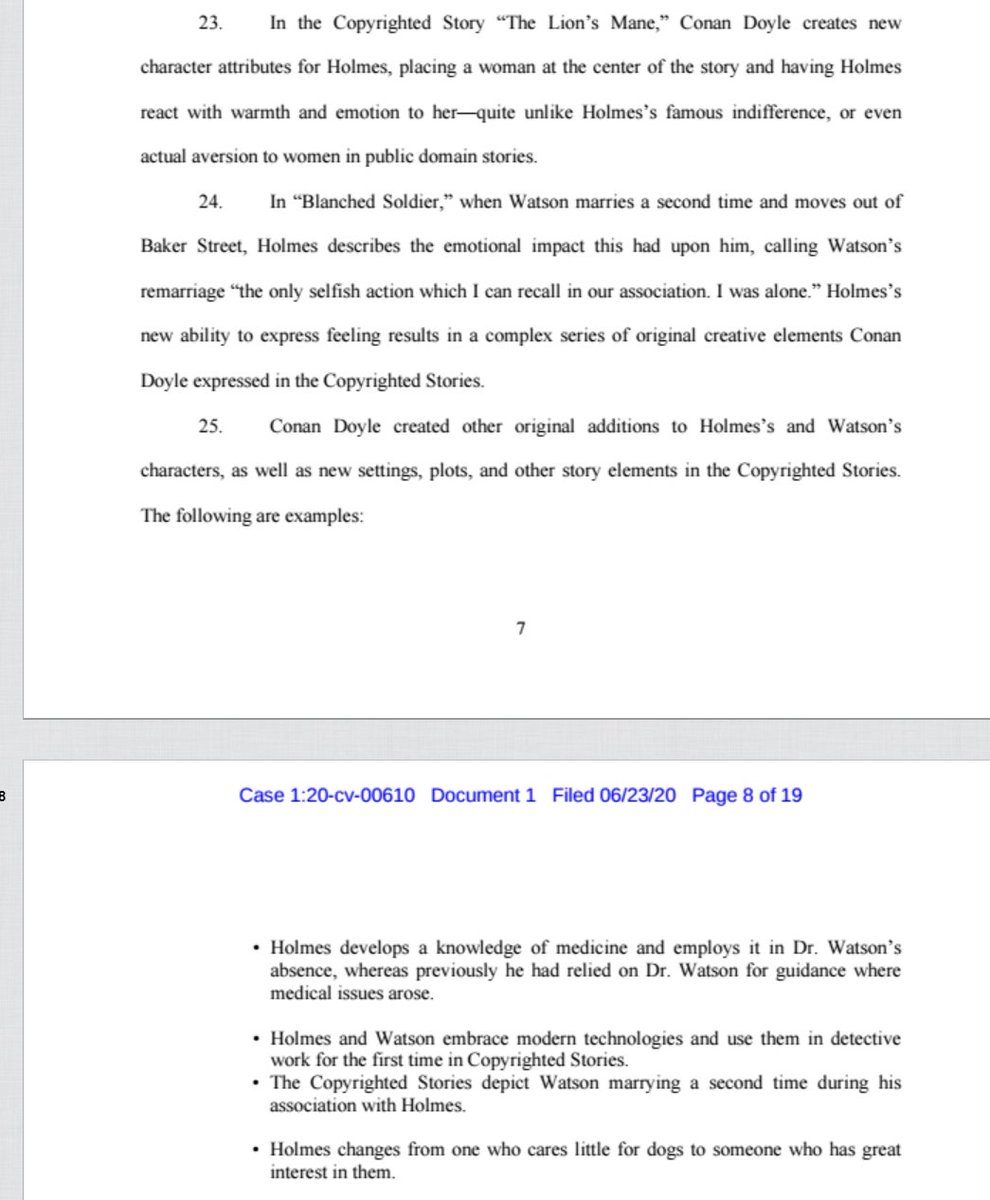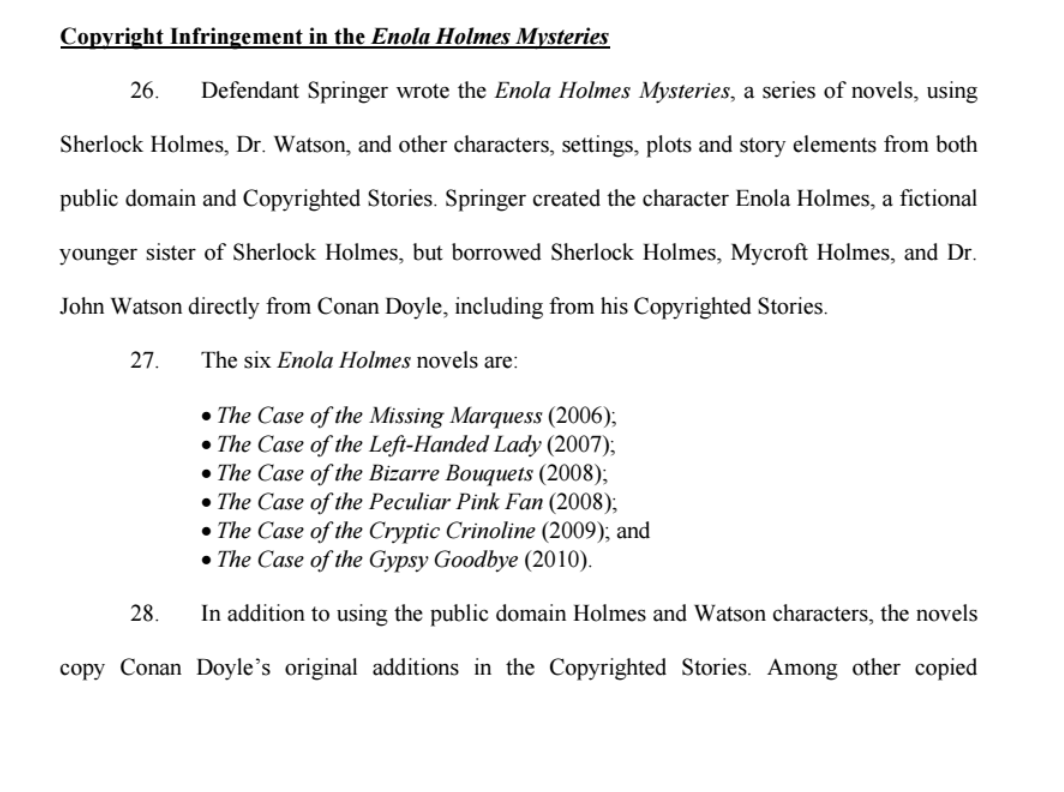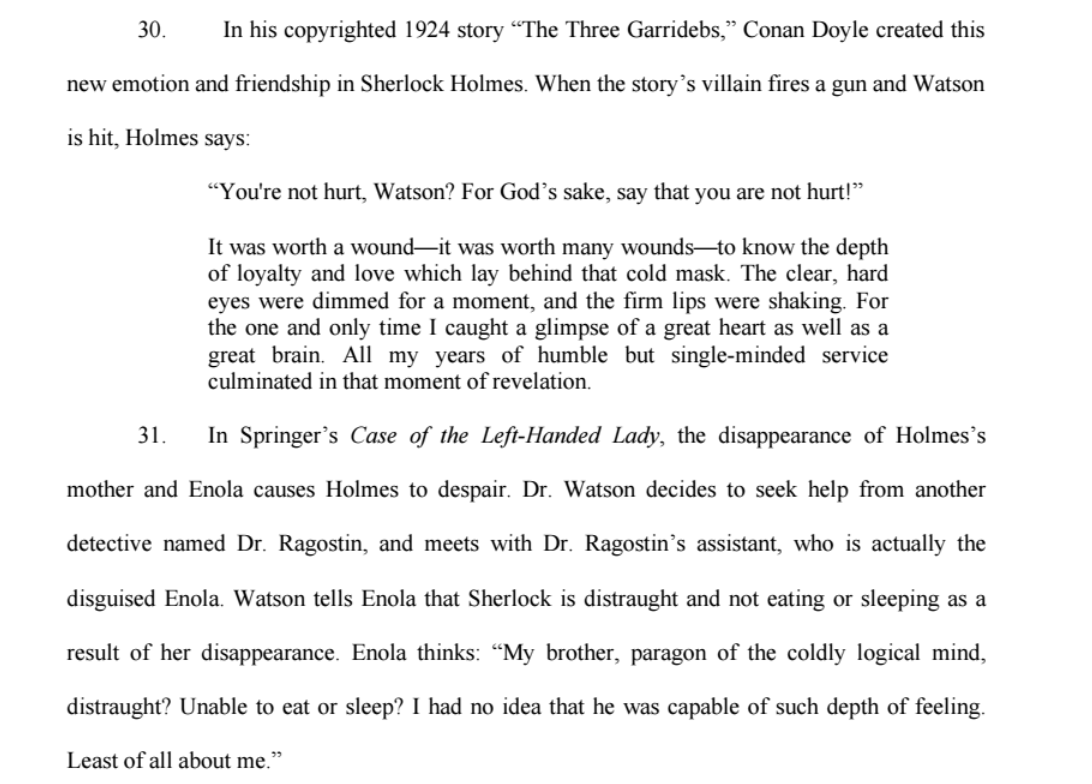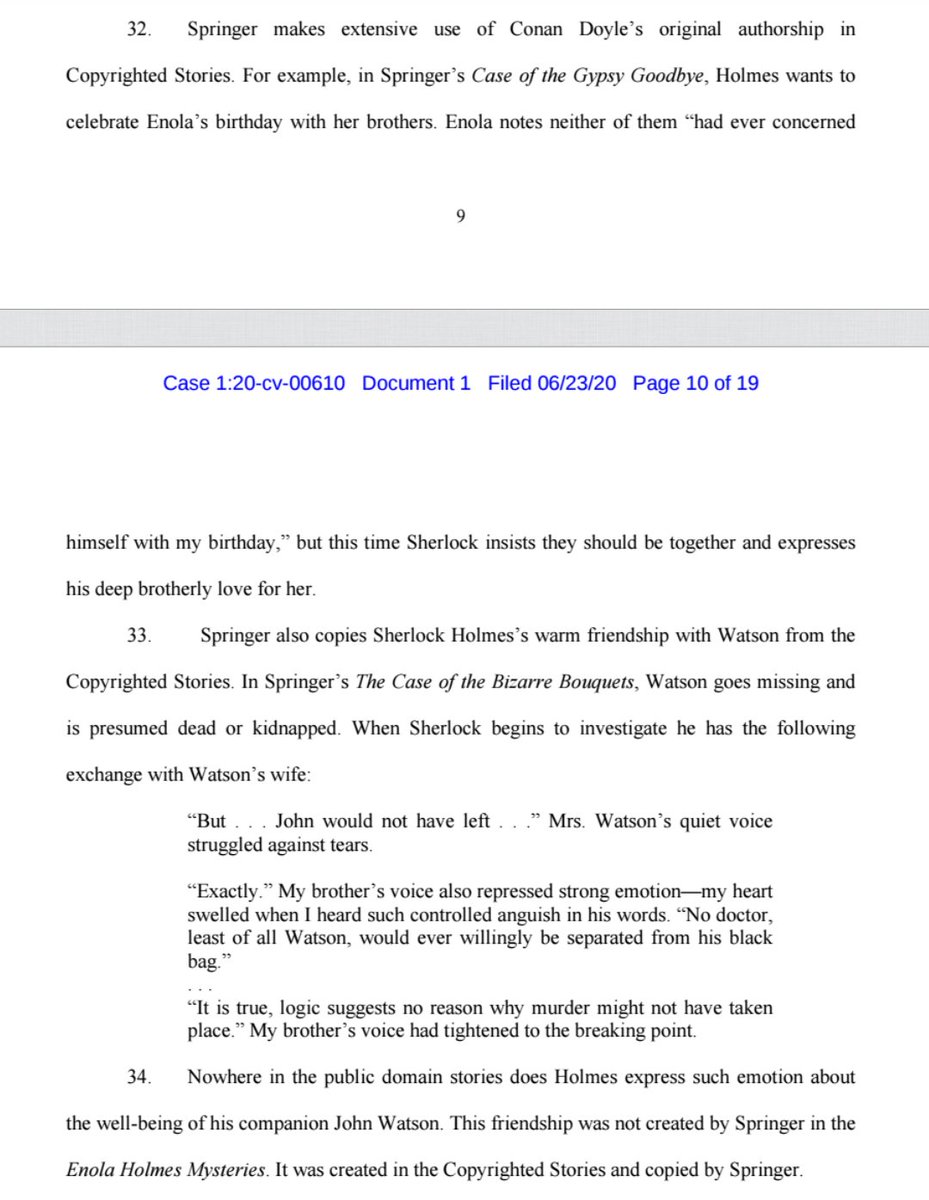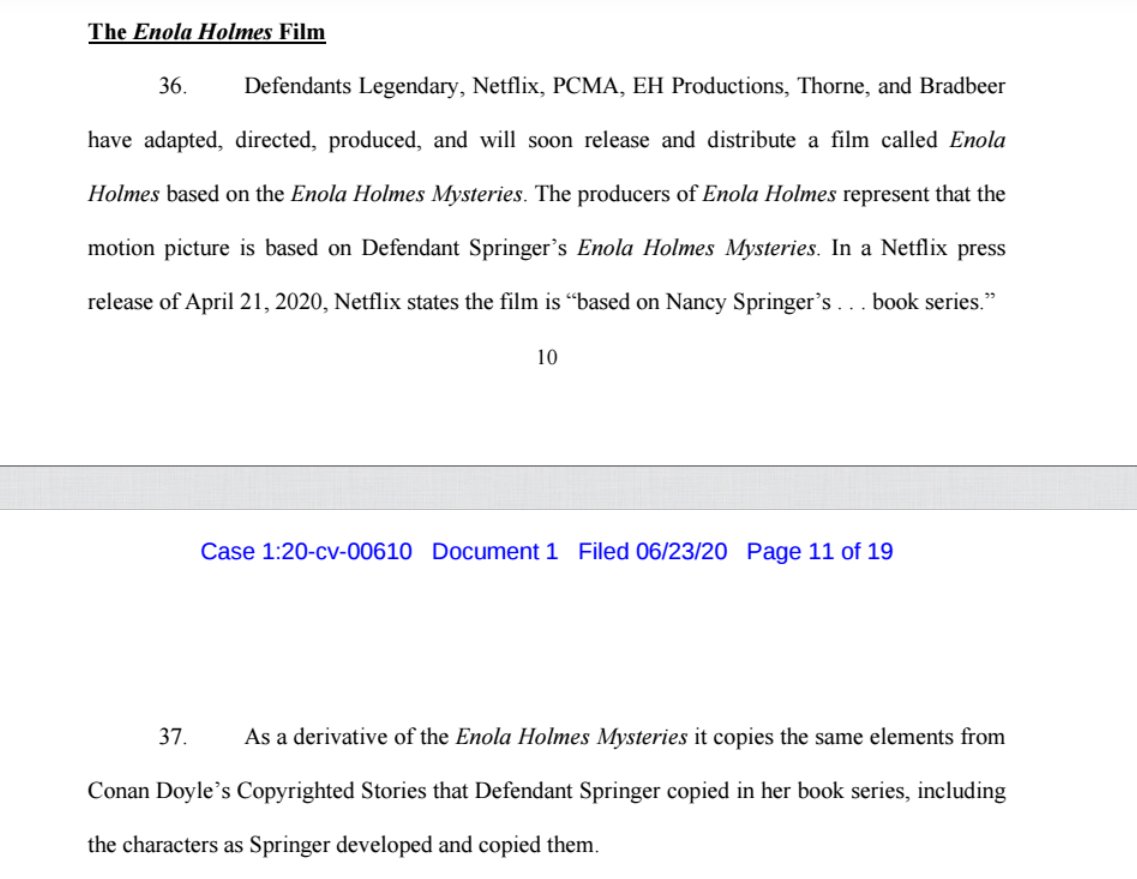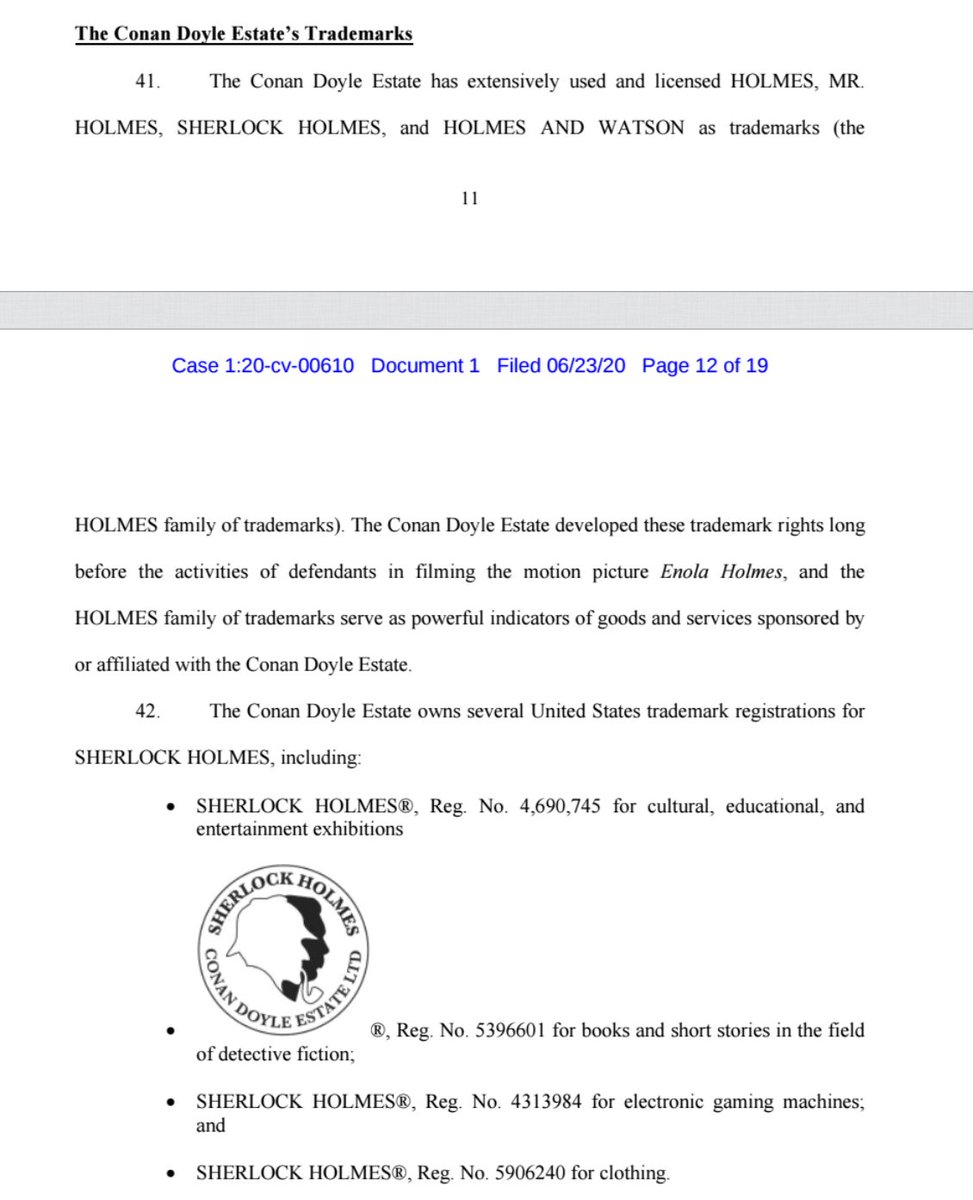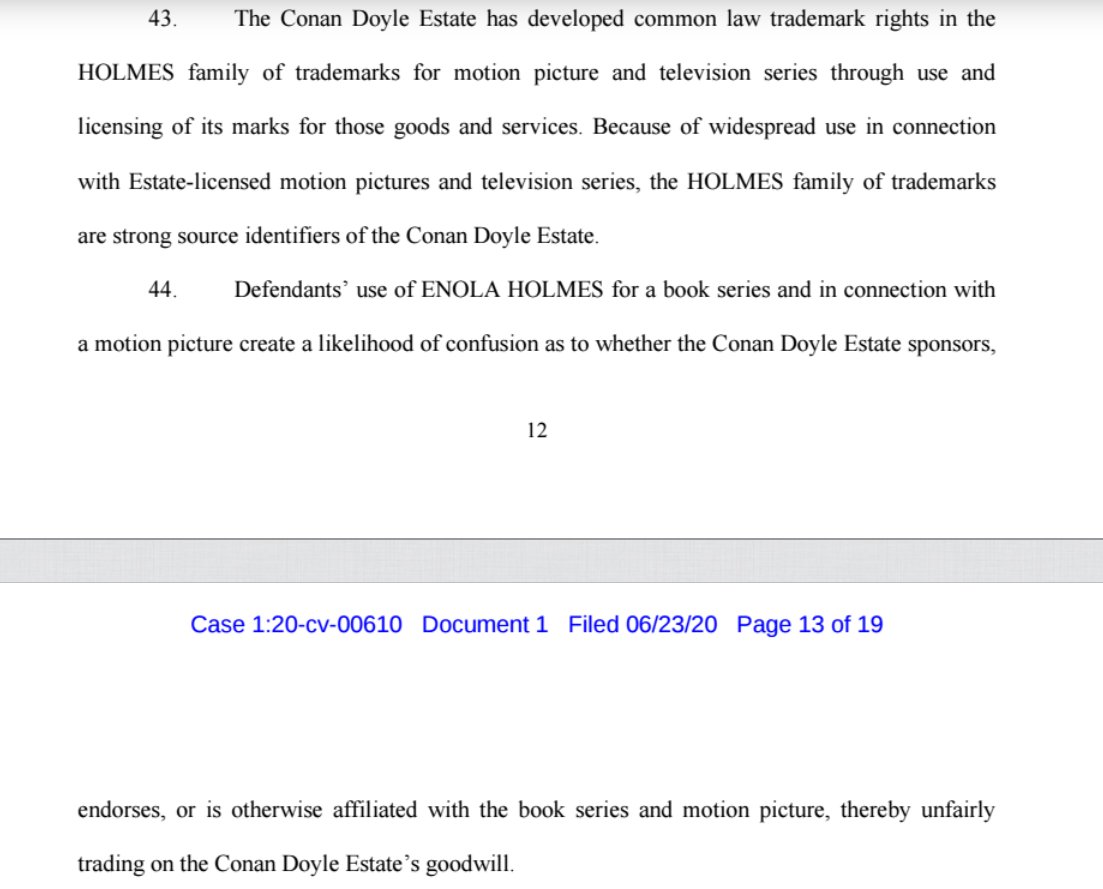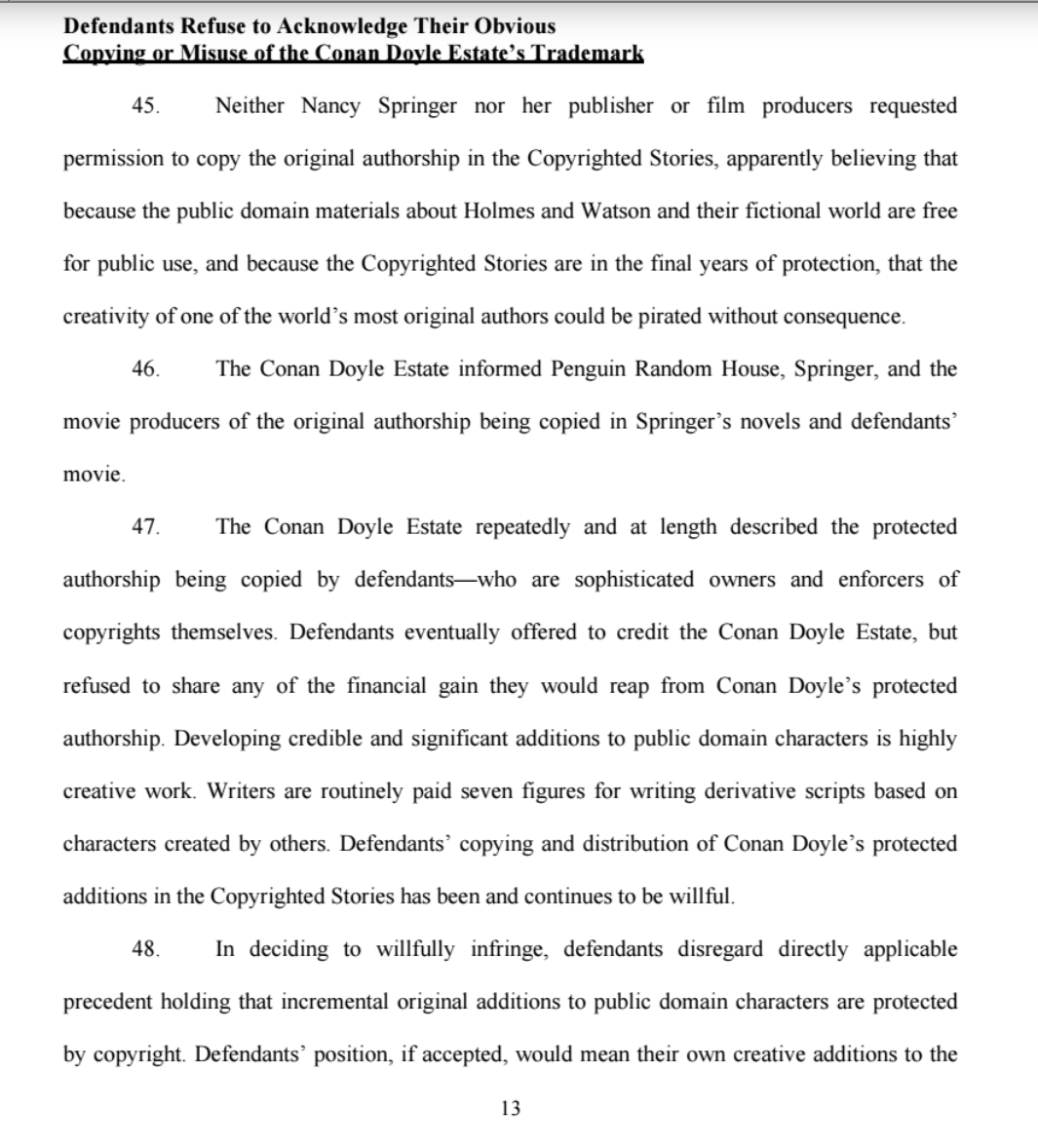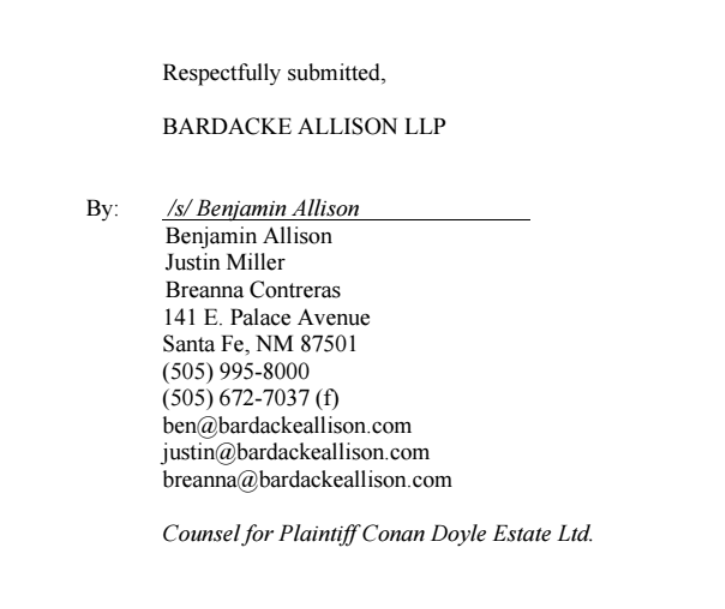THREAD:
A couple of people have pointed me toward this lawsuit in the last day or so, and I& #39;ve definitely got some thoughts about it. Many of those thoughts involve the Conan Doyle estate, the word & #39;litigious.& #39; and various adjectives.
https://www.theverge.com/2020/6/25/21302942/netflix-enola-holmes-sherlock-arthur-conan-doyle-estate-lawsuit-copyright-infringement?utm_campaign=theverge&utm_content=entry&utm_medium=social&utm_source=twitter">https://www.theverge.com/2020/6/25... via @Verge
A couple of people have pointed me toward this lawsuit in the last day or so, and I& #39;ve definitely got some thoughts about it. Many of those thoughts involve the Conan Doyle estate, the word & #39;litigious.& #39; and various adjectives.
https://www.theverge.com/2020/6/25/21302942/netflix-enola-holmes-sherlock-arthur-conan-doyle-estate-lawsuit-copyright-infringement?utm_campaign=theverge&utm_content=entry&utm_medium=social&utm_source=twitter">https://www.theverge.com/2020/6/25... via @Verge
The motivation for this suit is very clear. Sherlock Holmes is almost, but not quite, out of copyright. This makes the Estate sad, because no more income from long-dead ancestor& #39;s work. So they& #39;re suing for every last penny they can grab. It& #39;s really that simple.
Here& #39;s where it gets complicated: even though copyright is only supposed to protect creative works that have been & #39;fixed,& #39; which means they exist in a defined form that& #39;s been written down or recorded, copyright protections have been judicially extended to fictional characters.
I& #39;m not going to take a deep dive into that doctrine on a Friday night. Suffice it to say that I think it& #39;s a dangerous extension of copyright that gets us into all kinds of trouble on a regular basis.
Anyway, Sherlock Holmes is a fictional character, and Sherlock Holmes was/is protected by copyright. It& #39;s "was/is" because the copyrights in the Conan Doyle Holmes stories have been expiring; in fact, most have already expired.
They& #39;re down to the last few stories, and even those fall into the public domain at the beginning of 2023.
So how does this affect the character? It& #39;s kind of simple. The estate, which is litigious as heck, sued to try and protect the entire character a few years back.
So how does this affect the character? It& #39;s kind of simple. The estate, which is litigious as heck, sued to try and protect the entire character a few years back.
In that case, the court said "not so fast." It ruled that the character starts to fall into the public domain when the first published story enters the public domain.
https://scholar.google.com/scholar_case?case=16324874357219278010&q=klinger+v+conan+doyle+estate+ltd&hl=en&as_sdt=206">https://scholar.google.com/scholar_c...
https://scholar.google.com/scholar_case?case=16324874357219278010&q=klinger+v+conan+doyle+estate+ltd&hl=en&as_sdt=206">https://scholar.google.com/scholar_c...
This doesn& #39;t mean that the entire character enters the public domain at that time, though. Rather, the character enters the public domain as it existed in that story - details that are "part" of the character but weren& #39;t revealed until later in the arc remain protected.
In my view, this is clunky, awkward, and awful but far better than letting the copyright in a character be infinitely extended by continuing to churn out low-value works for the sake of maintaining the copyright.
So, with that in mind, let& #39;s see what the Estate is claiming has been infringed in this case. Rather than going off the news accounts, we& #39;ll rely on the complaint itself.
I& #39;ll skip most of the procedural stuff and focus on the key areas. https://www.documentcloud.org/documents/6956021-Sherlock.html">https://www.documentcloud.org/documents...
I& #39;ll skip most of the procedural stuff and focus on the key areas. https://www.documentcloud.org/documents/6956021-Sherlock.html">https://www.documentcloud.org/documents...
OK.
They& #39;re basing their case on the last 10 stories, and they are claiming for some prior acts.
They are also not challenging the holding in Klinger v Conan Doyle, which is an interesting choice, given that this is in the 9th Circuit, and that case was in the 7th.
They& #39;re basing their case on the last 10 stories, and they are claiming for some prior acts.
They are also not challenging the holding in Klinger v Conan Doyle, which is an interesting choice, given that this is in the 9th Circuit, and that case was in the 7th.
They& #39;re also pitching whatever they& #39;re claiming was infringed as "story elements." It will be interesting to see what, exactly, is being claimed. (I haven& #39;t read ahead.)
I haven& #39;t been paying close attention to the strategy behind venue choices in copyright, but I find myself wondering why New Mexico. It& #39;s in the 9th, and it& #39;s a small state. Rocket Docket?
I& #39;m not going to dive down that rabbit hole, but I could see this not turning out well.
I& #39;m not going to dive down that rabbit hole, but I could see this not turning out well.
Diving into the allegations, it does indeed look like they are focusing on the unemotional depiction of Holmes in the earlier stories.
I& #39;m also not seeing much yet that alleges that anything other than very vague character traits were taken from the works that are still protected.
OK. Now we& #39;re getting into specific claims of infringement. And it looks like they& #39;re claiming that the infringement they are complaining about now first occurred in books published 10 to 15 years ago.
Literally claiming that actual friendship between Holmes and Watson is still protected.
This is -
it& #39;s not good. It& #39;s claiming protection in something that& #39;s more abstract than a character. It& #39;s -- how do you even judge things like this?
This is -
it& #39;s not good. It& #39;s claiming protection in something that& #39;s more abstract than a character. It& #39;s -- how do you even judge things like this?
It& #39;s claiming, basically, that there& #39;s no right to your own derivative version of the public domain character if your derivative is arguably close to where they went later, even if there& #39;s no use of actual content from the later works.
It& #39;s a plea for further expansion.
It& #39;s a plea for further expansion.
And it& #39;s in the 9th, so they might just get that expansion.
They don& #39;t specify what this might be. And I& #39;ll go out on a limb and guess that if any of it involved anything at all that was remotely concrete, it would have been listed.
Oh, and because there& #39;s not enough rent-seeking and free-riding by the descendants of a long-dead author, they& #39;re also using this case to try and use trademark law to indefinitely extend their right to further suck in money while creating nothing of value.
Because, obviously, nobody will create things if it won& #39;t benefit their great- great- grandleeches.
And, no. The defendants are not claiming that their own additions are not creative.
They are claiming - and I think that they are right - that the copyright protection in a fictional character becomes thinner the more of the character is in the public domain.
They are claiming - and I think that they are right - that the copyright protection in a fictional character becomes thinner the more of the character is in the public domain.
And that& #39;s basically the case.
The firm that filed is apparently small, and based in New Mexico, which might be the explanation for the venue.
Maybe this is more a last gasp effort than an attempt to trailblaze?
The firm that filed is apparently small, and based in New Mexico, which might be the explanation for the venue.
Maybe this is more a last gasp effort than an attempt to trailblaze?
I don& #39;t know, but if I was that firm I& #39;d be a bit concerned about mixing it up with whoever Netflix and Penguin hire - especially since they really would prefer not to pay the Estate on out until the end of time.
Anyway, I& #39;m surprised. I expected the article& #39;s "they& #39;re trying to copyright Holmes having emotions" to be hyperbole, but it& #39;s the actual, literal claim.
It& #39;s one that stretches existing law to the limits. I don& #39;t think it should succeed, but I wouldn& #39;t rule it out.
It& #39;s one that stretches existing law to the limits. I don& #39;t think it should succeed, but I wouldn& #39;t rule it out.
It& #39;s a case that& #39;s ripe for the kind of creeping expansionism that the 9th loves, particularly where fictional characters are concerned, and it wouldn& #39;t be out of step with other recent atrocities they& #39;ve inflicted in this area of the law *cough*batmobile*cough*.
This is one to watch closely.
/fin
/fin

 Read on Twitter
Read on Twitter